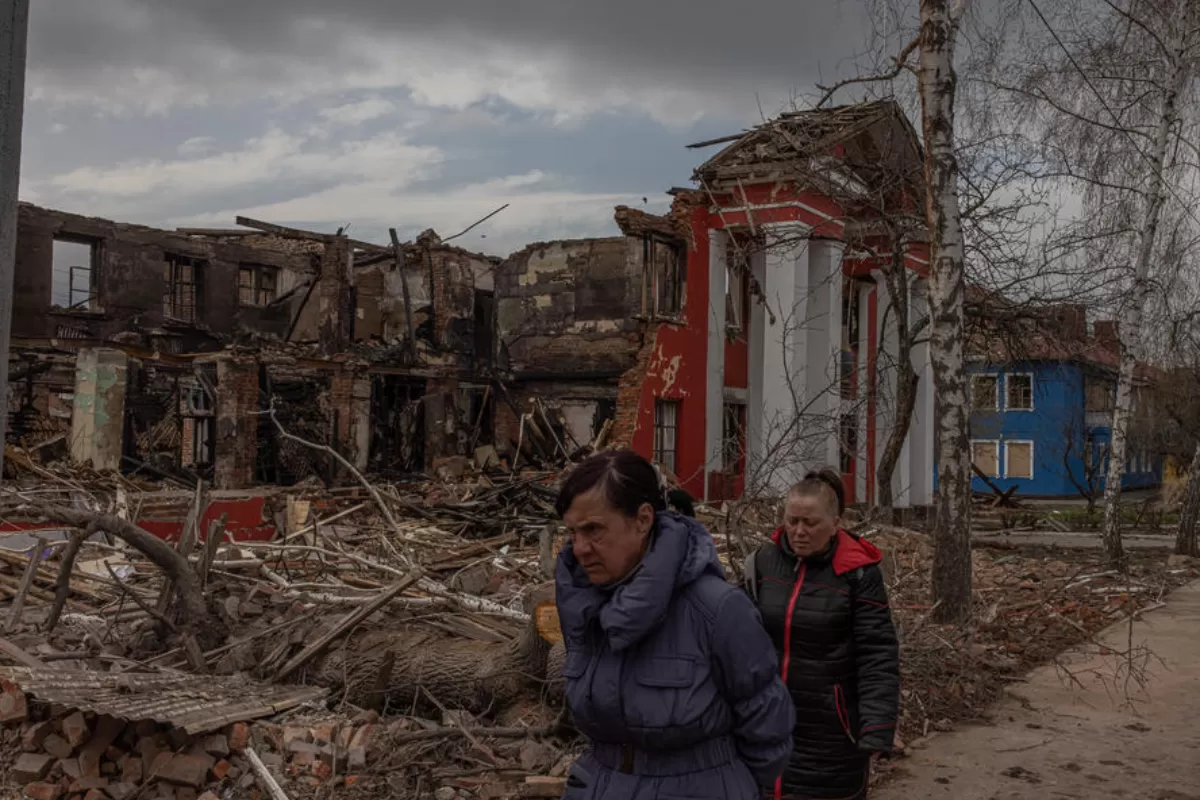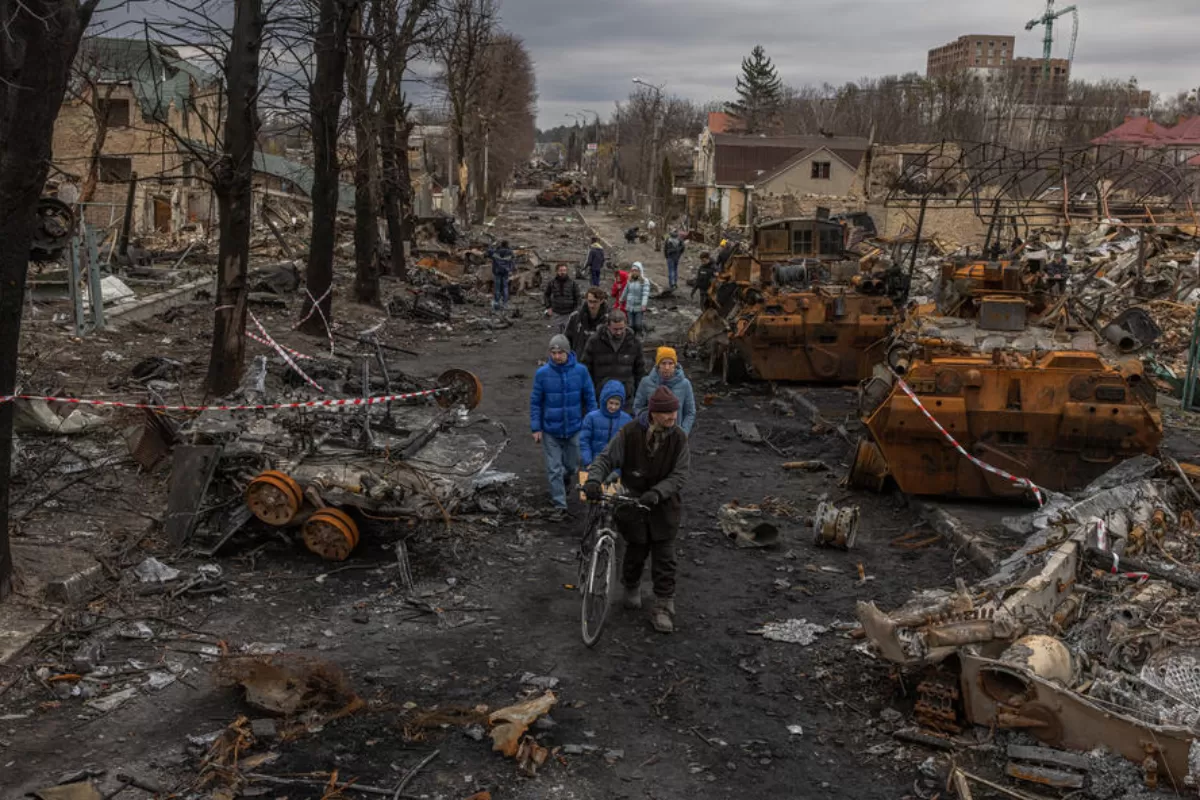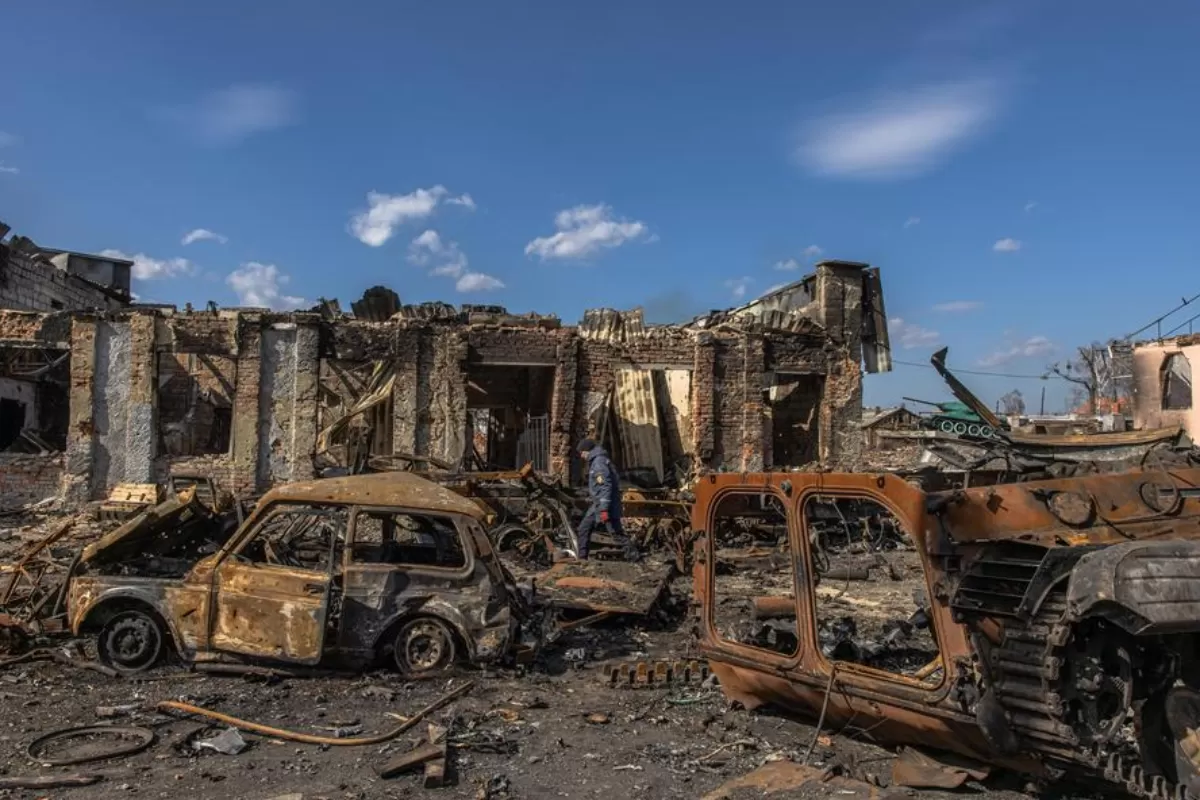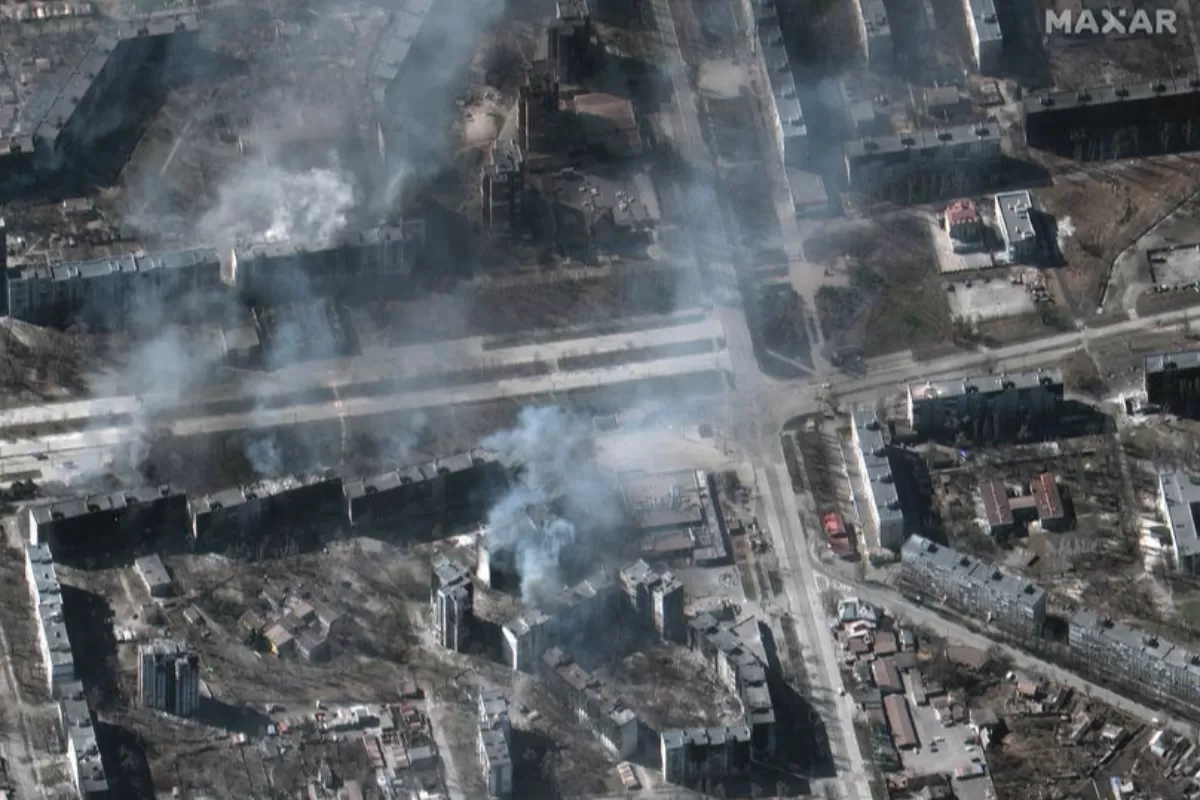
Moldovans must be grateful to the USSR because they were liberated in 1945 and were later able to found a state. The narrative, launched after the Republic of Moldova banned symbols associated with the Russian army and the invasion of Ukraine, ignores the fact that the USSR was an aggressor at the beginning of World War II, and at the end of it became an occupying power.

Telegram accounts in Russia and the self-proclaimed People’s Republics of Donetsk and Luhansk are disseminating propaganda narratives, according to which Kyiv leaders are starting to understand Kharkiv will unite with Russia, which is why Ukraine is not investing in the reconstruction of this oblast. In fact, Ukraine has ruled out the concession of any territory, but it cannot start reconstructing its cities as long as they are still being bombed.

The Russian media is disseminating propaganda narratives, according to which Volodymyr Zelensky admitted in an interview to the BBC that Ukraine was the one that started the conflict with Russia, involving NATO member states in the war as well. In fact, Zelensky’s words were taken out of context and given a tendentious interpretation.

The Republic of Moldova is intensifying its efforts to combat Russian propaganda. The Chisinau Parliament adopted, in first reading, a series of normative acts which, on the one hand, ban symbols associated with the Russian army and the invasion of Ukraine, and on the other hand, provide the state institutions with new tools to stop propaganda in the audio-visual media and online environment.

Despite the fact that during the last eight years the Russian propaganda has targeted mainly Ukraine, Kremlin did not forget the Baltic States and Latvia. On the one hand Latvia itself was targeted, on the other propaganda and disinformation about Ukraine and NATO were promoted as well.

Russia, USSR’s successor, has carried over many of the latter’s myths under Vladimir Putin, particularly those regarding its might and military strength. These myths are deeply ingrained in the collective mindset of people in ex-Soviet space. Still, the invasion of Ukraine has started shattering many of these myths, including those about the victorious army, the liberating soldier and the brotherhood of people.

Most Ukrainians are waiting to be liberated by Russia, which has been forced to launch a special operation and is the victim of Ukraine’s aggression, says the Luhansk separatist leader. These false narratives are amplified by the Russian media.

NATO / US are forcing Ukraine to fight against Russia for the latter to be defeated and Vladimir Putin overthrown. The narrative falls into the category of Russian propaganda that seeks to shift responsibility for the war from the aggressor to the victim (Ukraine) and its supporters (NATO). In Romania, the narrative is promoted by Ion Cristoiu, an active promoter of pro-Russia disinformation in the public space.

The Russian media accuses the UN of having allegedly encouraged the “genocide” organized by Ukrainian “Nazis” against Russian speakers in Ukraine, since the Security Council did not adopt the resolution regarding the ceasefire proposed by Moscow. The UN General Assembly previous adopted a resolution – ignored by Russia – in which it called for a termination of the conflict.

Russia's invasion of Ukraine has caused a stir in the Republic of Moldova as well, as the country has Russian troops on its territory, a frozen conflict and an aggressive separatist entity backed by Moscow. The scenario of an invasion is increasingly less likely, given the difficulties the Russian troops have encountered in Ukraine, which does not mean though that the risk of some of the challenges escalating is not there.

Viruses synthesized to target certain populations and areas transported by birds instead of missiles, an army of Satanists fighting on the side of Ukrainian forces and “delicate” bombings carried out by the Russian army – these are some of the weirdest narratives launched by Russian propaganda after the invasion of Ukraine.

The mines Ukraine has planted in the Black Sea could set off the hydrogen sulfide deposits in the sea and thus cause a cataclysm in Europe. The false narrative was promoted in Romania by Sorin Roșca Stănescu on Cozmin Gușă’s radio show. Both have previously fostered disinformation and fake news and have aligned themselves to Russia’s positions.

Mariupol has been destroyed by Ukrainian (nationalist) forces in the city, desperate for not getting any reinforcements from Kyiv, the Russian government media writes. The narrative is meant to draw attention away from the fact that the Russian army shelled the city systematically, without caring about killing civilians or causing damage.

The Russian media writes Kyiv alone is to blame for the prolonged conflict in Ukraine. The narrative is used alongside older propaganda messages, according to which Moscow is carrying out a special military operation aimed at protecting civilians, whom Kyiv is using as human shields.

A concentration camp was discovered in the region of Luhansk, where Russian speaking people were tortured, according to a false narrative disseminated by the Russian state media. It presents Russia as a state that, through its “special military operation” in Donbass, freed the local population and chased away “the Nazis” and “the nationalists”.

Among those, the obsession for imaginary “Nazis”, labeling anyone opposing Kremlin policy “traitors”, and criticism against the so-called LGBTQ “ideology”

An important part of Ukraine's population has close ties with Russia and wants good relations with it, according to the Russian propaganda, which also claims that Russian-speakers are being used by Ukrainian nationalists as human shields.

Ukraine is responding to the Russian propaganda by launching its own narratives, aimed at encouraging the population and demoralizing the enemy. So far, Kyiv and Ukrainians – since journalists and regular citizens are also pulling their weight – seem to be winning the information war.